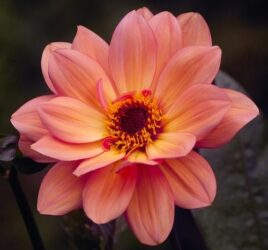
10 THINGS TO NOTE BEFORE BECOMING A PLANT PARENT
Becoming a plant parent can be a rewarding experience, but it’s important to understand that plants, like any living organisms, require care and attention.
Here are top 10 things to note before becoming a plant parent
Research Your Plants
Consider Your Space
Watering
Lighting
Soil and Potting
Temperature and Humidity
Pest Management
Routine Maintenance
Patience and Observation
Learn from Mistakes
1. Research Your Plants
– Different plants have different care requirements. Some may need more sunlight, while others thrive in low light conditions. Research the specific needs of each plant you intend to bring into your home.
2. Consider Your Space
– Assess the available space in your home before buying plants. Ensure there’s enough room for them to grow and that they will receive the appropriate amount of light. Consider factors such as humidity and temperature as well.
3. Watering
– Overwatering is a common mistake for new plant parents. Understand the water needs of each plant, and be mindful not to drown them. Allow the soil to dry out between watering, and use well-draining pots.
4. Lighting
– Different plants have different light requirements. Some thrive in direct sunlight, while others prefer indirect or low light. Place your plants in locations that match their specific needs.
5. Soil and Potting
– Use the right type of soil for each plant, and make sure the pots have drainage holes to prevent waterlogging. Repot your plants as they grow to provide fresh nutrients and space for their roots.
6. Temperature and Humidity
– Be aware of the temperature and humidity preferences of your plants. Sudden temperature changes or exposure to drafts can stress them. Grouping plants with similar preferences can create a microclimate that benefits them.
7. Pest Management
– Keep an eye out for pests and act promptly if you notice any signs of infestation. Regularly inspect your plants for pests, and consider natural remedies before resorting to chemical solutions.
8. Routine Maintenance
– Establish a routine for checking and caring for your plants. This includes dusting leaves, pruning when necessary, and fertilizing during the growing season. Regular attention helps prevent issues from escalating.
9. Patience and Observation
– Plants take time to grow and adapt to their environment. Be patient and observant. Learn to recognize signs of distress or happiness in your plants, and adjust your care accordingly.
10. Learn from Mistakes
– Accept that you may make mistakes along the way. Learning from these experiences will make you a better plant parent. Don’t get discouraged if a plant doesn’t thrive initially; it’s all part of the learning process.
By being well-prepared and informed, you can create a nurturing environment for your plants and enjoy the satisfaction of watching them thrive under your care.



